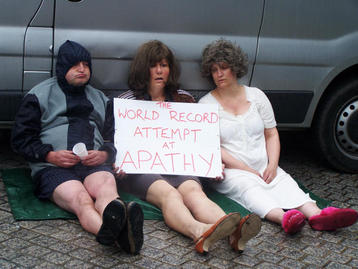 They've a long way to go to beat some of our church pews! They've a long way to go to beat some of our church pews!(http://bit.ly/1b0Nrb5) (From rant to reason) The hilarious "Wrong Worship" video captures the pervasive mood in many a church's pew, as we sit in beautiful professional services that lull us into a comfort zone of fake security. This apathy bugs me ... a lot! Three times in the last week I've been in church situations when I've wanted to cry "just do it, at least do something!" How many in church are engaged? What percentage are once-a-month attendees? And even the regulars, how many actually do anything beyond showing their faces? Surely "make disciples" means "do something". And if we're not doing something, then are we failing at what is arguably the third greatest commandment. So what makes someone take action? What motivates activism? How does someone arise out of apathy? Make it personal: when did YOU (when did I) last actually do something about poverty, societal injustice, climate change, the financial system, political corruption or any one of the myriad other ills in our world? Let alone the suffering of our neighbour. And I'm not talking about that dinner party moment where we all love express our indignation about the current headline of the day. OK, so it's easy for me to say, and the finger also points straight at back me. But my culpability in no ways changes the fact that our churches are often the perfect quiet backwaters of good intentions. There are two practical sides to this problem: permission givers, and motivated hearts. If someone is moved to action but unheard by leaders, then their passion becomes passive. And if leadership cries "we need to do something", but there are no motivated hearts, then their voices fade as echoes in a cave. Lets say little about the permission givers (for now) - in our church I believe we have good permission givers. Suffice to say here that globally there is a striving for an ever-more professional church, but often there serves only to comfortably massage the consciences of the pew patrons. Any latent activism among the amateurs of a congregation can face an immense hurdle to find official mandate, let alone proactive support. Churches need leadership that says "Far better for our people to get down and dirty with their hands as they seek to serve", and then be willing to accept the inevitable mistakes by some. At least then church would be filled with people who are not only there to cheer on the professionals. The key question is "what will motivate us?" There are no shortages of needs and our churches are overflowing with disengaged talent and capacity. Where does the apathy come from?  The immersion culture The immersion culturehttp://bit.ly/1i3Y41T Motivation requires comprehension. Have you ever witnessed a bad car accident, or know someone who's had a first hand experience of tragedy? Compare the personal impact of that with how we respond to the endless bad-news in the media ... shootings, famine, rebellion, disasters. We're surrounded in our culture of immersions, yet we're strangely numb to the suffering. We walk by the destitute in the street with barely a thought. Without personal comprehension we remain unmoved. We need to comprehend! God will use any little bit we dare give him, but we've got to get a bit of comprehension to trickle down from our head knowledge and into our heart. No wonder the Bible talks of how Jesus was moved ... in his heart! Compassion is not a mind-thing, it's in the heart. Sadly, in our culture of material acquisition we are deeply fearful of heart-pain, and we're expert at building defenses against it. We are so successful at this that now we can even find perverse pleasure in a media fest of violence (just look at the tabloid culture), as long as we're not personally involved. Where do we find comprehension?  Open your eyes Open your eyeshttp://bit.ly/1i42hCK It takes courage to open your eyes. And I'm not talking about seeing the world that is actually around us, but being brave enough to look at God. All ultimate reference for our motivation is rooted in how we understand the holiness of God. Holy, its an odd word. If I say to someone in church that "God is holy", they'll nod in agreement, yet our shared understanding is shallow, poor, and peripheral at best. Jesus spoke to those who knew a language of religion, and so he turned his message into powerful metaphors and parables. He broke the familiarity of language that they thought they understood, and opened their eyes. The Bible says that God is holy, holy, holy. Not merely once holy. The Bible never says that God is love, love, love, or mercy, mercy, mercy, or wrath, wrath, wrath. Yet, all that this tells me is that holiness is really important. It doesn't help me comprehend holiness and misses the concept that God is completely other, entirely unique, no one is like him. His holiness is above all his other attributes, its his defining attribute: his love is holy, his power is holy, his justice is holy, "Because He is holy, all His attributes are holy" (Tozer). This is not like the common uniqueness of a snowflake ... yes, each snowflake is unique, but then there are so many "unique" snowflakes. Imagine instead if there was only ever one snowflake. It's attributes (pointed, spiky, cold, star shaped, etc) are all uniquely expressed in this one snowflake. The attributes don't define it's snowflakeness, instead this singular snowflake defines its attributes. Only one snowflake would be truly unique, without compare, nothing can measure against it. If we say God is love, then we imply he should be able to excuse sin (and how much do we hear that today!). But if we say God is holy, then that is what defines his love, and his justice, wrath, and compassion. These only exist because he is holy ... because of his total and singular perfection without comparison. Because of holiness, I am undone. He tells me to be holy because that was how he chose to create me, and the choices of an unchanging God holds for eternity. Yet his very holiness destroys me. "Some Christians spend the first six days of each week sowing their wild oats, then they go to church on Sunday and pray for a crop failure." (Anonymous) As Martyn Lloyd-Jones says, "What gives us conviction of sin is not the number of sins we have committed; it is the sight of the holiness of God." Corollary: if I have no sight of the holiness of God, then I have no conviction, and if I have no conviction, I have no motivation, and if I have no motivation, and I am dead in apathy. Instead, if I keep alive the big question, not get bogged down in the minutia of personal peeves, then I can begin to understand what it means to have sight of holiness. If I can only surface from the twitter culture, the reality shows of trivia, the ego-trips of facebook, the self promotion of instagram selfies, and the tyranny of time. Only then can I find a reference, only then can I find the root of motivation for my response, and only then as a church will we ever get our collective butt off the pews. Tozer again: “Has it ever occurred to you that one hundred pianos all tuned to the same fork are automatically tuned to each other? ... tuned, not to each other, but to another standard ... each one looking away to Christ, are in heart nearer to each other than they could possibly be." The comprehension of holiness is the underpinning of all great revivals. If we want to see people moved to serve, we need to begin to comprehend holiness. And as we gain comprehension, so we'll be irresistibly moved to attempt the impossible.
0 Comments
This is a cross post:
AN AMERICAN journalist, Gloria Borger, said: "For the press, good news is not news." And positive stories rarely make the headlines when it comes to children and technology. Instead, there has been a stream of chilling reports about the sinister side of the web. Cyber-bullying is on the rise, resulting in teenagers' self-harming, and, in tragic cases such as that of Hannah Smith, taking their own lives. Read the full post at the Church Times This is a crosspost:
It was one of those days where everything sucks. Portland had hit freezing temperatures all week. I had to scrape ice off my windshield while trying to warm up with reheated, 3 day-old coffee. The holiday season had barely begun and already, I’d been hit with a tidal wave of work and stress. Now in my car, I was driving and beyond pissed. Anxiety, fear, fatigue, hunger. Read the full story here: http://bit.ly/1dUbkFx  An alien An alien I get into debates. Too often perhaps. They're good discussions, generally. But often there is the tension that who you think God is, is sometimes very different from me, even if we call him the same name. It often seems that the god other people are supposedly serving is a porcelain figurine that is merely pleasing to the eye. My God, unfortunately, is not so compliant. In fact, I find him downright scary if I really think about it. Meaning of course that I don't think as much about him as I should! God must be bizarre to our perspective ... by definition he must be really incomprehensible. If not, well I suggest than he's not really worthy of the title "God." The ancients conveniently gave their gods useful names like Zeus which differentiated one from another. Today we make Hollywood movies about these gods. However, the modern equivalent seems to be much harder to discern. The gods of today are rather like the Smiths of England, the Christensens of Denmark, or the Johanssons in Sweden. The name is the same, and found everywhere, but the behind the name is something very different. And so in the churches of the world people seem to worship a range of gods under the common name of Jesus. So who is my God? What is his nature? Well, I sat down and wrote down what I understand about my God, and here's my list. With each I've included some of the conundrums and contemplations that come to mind. I'm writing from experience, from what the Bible tells me, and not from other people's opinions. This is what I've learned and experienced! Each of these characteristics are those of a person, not an object. Each attribute deserves a book in and of themselves ... but one has to start somewhere.
So how's your god doing?  Bear with me, I'll get to the topic. Who on earth was CS Lewis ... really? I watched the BBC TV special on Lewis … did you know that CS Lewis, Aldous Huxley, and J.F. Kennedy all died within 24 hours of each other? Who was the greatest of these three? Is that even a fair question? Probably not. In any case, of these - the Christian, pantheist, and humanist - I suggest that the thinking of Lewis was by far the closest to Truth. Does that make him the "greatest"? Probably not, but it perhaps puts him in the best position to deal with reality. Here was a man who has influenced generations around the world. Like millions of others, I have been deeply changed by reading Lewis; for it is to the degree we allow a text to read our inner self that we allow ourselves to be changed. In Lewis I found a man I could relate to. In my childhood I was drawn by the parallels (at least as I saw them) between Lewis' formative years and my own. His childhood school years were a living hell, mine were a misery. He retreated into imagination, so did I. His father was distant, so was mine. It's likely that I grossly over-interpret the meaning of these things, but at the time it gave me much needed perspective. And so over the years I gratefully built him up as a man of greatness … for “great” he was, if we measure greatness by influence. (Of course, against the standard of God-perfection we're all tiny bumps of indiscernible difference.) So when the BBC narrator spoke of how Lewis' father sending him to that horrid boarding school was a “big mistake”, I reacted negatively. Really, a big mistake? I suspect that if Lewis had experienced a “normal” childhood of easy friends and fun, then we might have lost one of the most important moral forces of the last century. I like to think that Lewis knew this, and was thankful. For myself I wouldn't trade my early years for anything - I am what I am in large part because of those years, and I like what I am (mostly). I would not be what I am without those formative experiences. Of course there are regrets, there always are. But these are regrets over what I did, not of what the world did to me. The gaps I now feel in my life have little relation to past struggles. My deepest desires are not for what this world can deliver. What I really long for is something that is hard to put words to, a sense and a frustration that I was meant for a reality that is more real. It sometimes leaves me feeling almost alone in a crowd because there's a mystery I want to delve into, and few others seem to share this desire. I find people without a such a thirst to be, quite frankly, boring people. But it is the miseries of childhood years that fostered this yearning; I glimpsed through them a bigger reality. I fear that if I had received a "normal" childhood, this would have skillfully played to my less desirable characteristics; those more dangerous attributes that I constantly flirted with. Without the proper checks and balances of experiences I suspect I would have become a deceitful, philandering pig with a temper and arrogance to match. So for my childhood pains (and all experiences) I (try to) give thanks; I would be the lesser for not knowing them. Through them I was molded and formed, and found some measure of wisdom because of these. For that, I am (literally) eternally grateful. 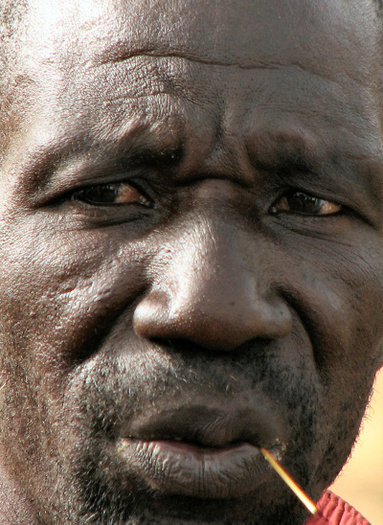 A consequence of struggles is that it helps me see that not everything exists in black and white absolutes, but rather that they present a series of choices. Each choice inexorably applies a pressure to the rudder of my soul. Those moments of my misery were really the grace of course-correction opportunities, steering me away from the cliffs of self-implosion. This was rough ground that I had to traverse so that I would glimpse a fuller reality and learn to thirst for real desire. That is, the desire to walk eagerly toward that final small step into eternity. Drawing on Lewis' imagery, on that final day I believe I will look back in thanks, and will see each moment of past trials through one of two lenses. If I choose wisely, then in each moment I'll see the early emergence of a future beauty. If I stray, my past will be a series of slips and slides to an opposing reality, prescient of a final loss. It all depends on the accumulation of my momentary choices. So those times when I was gripped by uncontrolled childish anger will instead be filtered as lessons on righteous indignation against injustices, or else they will be the tip of a looming iceberg of rebellion. That argumentative spirit which once distressed my parents will be a seed of wisdom tunneling into a reasoning light, exposing the dark corners of my soul. Or else, it will be an enormous pride reveling in momentary power that tries to draw others down my path of delusion.  Such it seems to have been with Lewis; he was truly human with many failings, as I am. He took the experiences the world handed him, and allowed them to illuminate truths that stood independent of his frail human shell, yet he was blessed to see and speak them. Truths that are as hard as diamond and not in any way dependent on the person that tries to carry them. Like Chesterton, we can each discover a new land, only then to find it has been known to others all along. We all make our journeys of exploration through daily experiences, entering new lands where we can choose to uncover treasures of wisdom that all along have been buried in our own back yard. All that is asked is for us to exercise our creative talents, in whatever form we have been gifted, to express truth. So that like fireflies in a dark field a few other souls may be drawn to what we've discovered. Yet in the dark many will still run from our glimmers, and will cover their eyes to protect their tiny worlds. So I give thanks for the troubles; I make no claims to be Lewis (nor would I want to be). But by his dark years he became one who helped me see truths that I would otherwise have missed. I have no ownership of these truths, but I too can discover them, and communicate them. Many times I have stood behind a dirty window that obscured. But the rain of experience can be a great window cleaner. So I come full circle. Why be thankful for moments of trouble? Because, if we let them, then like a rag they scrape away some of the dirt on the window into our lives. Some light can then enter to disturb our zone of false comfort, revealing to us an incorruptible and absolute solidity that we desperately need in a world awash with relativism. Its not easy. Many times we cannot see where, how, or when there could ever be even a vague silver lining. But the joy of discovery was never found without a journey. Every experience, if we allow it, will be used to make us brighter, better, and more solid, more real. Lewis, and many others helped me learn the patience and trust I needed to know that the "now" is infinitely tiny against the landscape of forever. "When I understand that everything happening to me is to make me more Christlike, it resolves a great deal of anxiety" [AW Tozer] 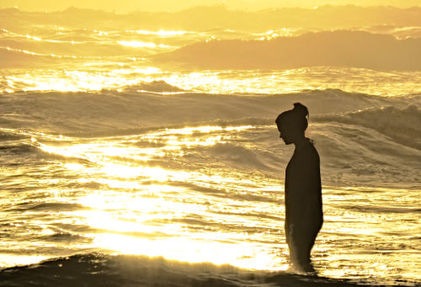 Are Christians so (supposedly) occupied by eternal issues that temporal details have become secondary? Are we comfortably numb? I've raised this question about climate change in a number of discussion forums, and the Christian response is frequently weak, disengaged, and dismissive. It is tempting to respond with fierce rhetoric, from either side, but that's not very constructive. Moreover, our sound-bite culture doesn't lend itself to a reasoned explication of views. For my own sake I want to lay out my difficulty with Christians remaining silent. There are six arguments that I find most often put forward in an attempt to justify this silence:
I want to lay out my reasoning in the context of each of these. In particular, I want to try and show some of the reasons why I think climate change should be right up there with all Christian's daily concerns, and that ignoring this is NOT a Christian option -- WWJD! Please note: this is not about green advocacy ... despite a clear Biblical basis for the stewardship of the earth, eco-activism is not the issue I address here. The real problem is far more important, personal, theological, and deeply relational. 1. Climate change is unproven and not important In the context of living as a Christian this is the least troublesome argument. So let's get this one out of the way quickly. First, this is not the place to present the full wealth of evidence for the reality and importance of climate change. The evidence is strong enough with out needing my advocacy, and like anyone coming to know Jesus, it is each persons individual responsibility to weigh the evidence and come to a conclusion. Many have presented the case for climate change, and such resources are easily found. The case for denial is also vigorously presented (the parallels between the debates on Atheism/Christianity and the climate change issue are eerily similar!). At the root of the matter is the fact that a near majority of climate scientists (those active in research), backed by more than a century of analysis, say that the human contribution to climate change is real, and that the consequences are massively important. The scientists do not claim total certainty in all the details, but profess that the case for humans causing climate change is far, far stronger than even that of, for example, the clear relationship between smoking and lung cancer. Against this is the vocal minority who are almost all not climate scientists and who say the opposite. You can draw one of four basic conclusions (with nuanced positions around these): a) Climate scientists (and all governments of the world) are engaged in a conspiracy. b) The scientists are simply mistaken, the truth is held by a few individuals (mostly not trained in climate science). c) Both are wrong and climate change is real but God-ordained. d) The scientists are correct, and human-caused climate change is real. To take the position of (c) is to say the physical evidence is wrong. To say (b) is just unrealistic -- theoretically possible but with no evidence to support it. And to assume (a) is, in my view, simply unsupported paranoia. I am left with (d). If you want to explore the facts for yourself (you should), then I encourage you at the very least to look at the arguments for and against. In my biased perspective I would point to www.skepticalscience.com as one good place to start, where the arguments against climate change are presented with the counter scientific evidence. Wherever you read, please read to see what's factual versus opinion, recognize when its emotive attack or the use of argument from authority, and don't merely find what makes you comfortable (which is also how we should read the Bible). 2. In biblical end-times the world is going to be disrupted anyway. The argument is that it is prophesied the end times will be characterized by massive disruption on land and in the sea, and some believe this era is imminent. Hence climate change is merely evidence of God's plans in action (the more extreme even say "bring it on, what can I do to hasten it?"). This is a non-argument. If one wants to take this position, one might as well say "I'm definitely going to die one day, so I don't need to exercise or eat healthily, in fact lets do drugs!" The position ignores one's personal Christian responsibility, and thus the argument is often presented alongside (3) below; that God is in control of everything. It's an argument of abdication. However, Jesus calls us to live in the now - his rule is both for the now and the not yet; Jesus established his Kingdom now but it will only be fulfilled in the future. And so we are to live as God's subjects now, and the suffering of this world is for our attention now. This means that we have a responsibility to do what we can to alleviate suffering, not exacerbate it. We have under our responsibility the poor, the weak, the dis-empowered, the vulnerable and abused, and those enslaved by the policies and activities of our broken societies. What God chooses to do in the end times in no way negates this responsibility. Our mission of mercy and compassion does not disappear in the midst of God's end-times work. Thus climate change, if you accept its reality, places an enormous multi-generation burden on the Christian, more so than on the secular society, for we profess God's compassion. By our choices the problem exists and persists. The poor and the dis-empowered are on the front-line of consequences, and it is our collective actions that have placed them there. How can I stand before God and say I do not need to take this as part of my responsibility to live for Jesus? 3. We are too puny to have any causative influence. To think "How could I ever change something at the scale of the globe" is not unnatural. After all, we are seemingly dwarfed by the scale of the planet and the universe. But this thinking is in part because we have such a poor sense of scale. We don't realize what "big" really means (and this is reflected in the way we often treat God as our buddy). But on a planetary scale, there are 7 billion of us. Do you know how big 7 billion is? The issue of physical scale is easily resolved. For example, open up googleearth and zoom to an altitude of, say, 50km. Now pan across western Europe, or the eastern seaboard of the USA, or south-east Asia, or most of the world land mass. How much undisturbed landscape can you see? Then perhaps watch this short video on how we measurably changed the planet, or this one which gives some history, or this one which shows global air traffic. One can go on and on: deforestation, global pollution, ocean impacts, etc., etc. It is simply untenable to say we humans cannot, and are not, changing the face of our planet. We are doing so with significant localized consequence. 4. God is in control, his sovereignty is what counts. Now, as to God's sovereignty, yes, God is sovereign and in control. God has also given us free will. To say as a Christian that the state of affairs is all part of Gods sovereignty is an argument to say I have no personal responsibility. But our free will has consequences, ranging from our personal lives to the genocides of Rwanda to ecosystem destruction, and with all the related human livelihood consequences in, for example the Nigerian delta or Pennsylvania ground water contamination. We cannot use the argument of God's sovereignty to negate consequences of our choices. If we could, then I might just as well say that everyone must go to heaven because we cannot be held responsible for our choices. If one really digs into the basis of this position against climate change, it simply does not hold water. Both evidentially and theologically this is not defensible. 5. There are more important issues to deal with (especially evangelism) The two biblical commandments that rise above all others are "“You shall love the Lord your God with all your heart and with all your soul and with all your strength and with all your mind, and your neighbor as yourself” (Luke 10:27). This is closely followed by a third, the great commission "Go therefore and make disciples of all nations" (Matthew 29:19). The argument goes that these are paramount, and the church (remember, that's you and I) is already massively negligent in these three objectives. Therefore we really need to invest our energies in these. How can anyone argue with that? a) Can you love the Lord your God with all your heart and with all your soul and with all your strength and with all your mind while you contribute to the ravage and rape of what he created and called good? b) Can you love your neighbor as yourself if you exploit an economic system of consumption for your comfort, while doing so disadvantages others (especially those of poor nations and of future generations) and leaves behind a legacy of pollution and environmental degradation? c) Can I make disciples of all nations when we disciple by saying "do as I say, not as I do"? I suggest it should be self evident that you cannot love God, your neighbor, or make disciples when our very own lifestyles stand in contradiction to our treatment of what God called good. Of course, climate change is only one aspect of this, and we can readily include economics, war, sliding morality, etc., etc. in the same context. Basically, when seen globally the Christian church (remember, the collective of you and I) fail at these top three desires of God because, as a global church, our voice is belied by our actions. So yes, these three remain: love the Lord God, your neighbor, and make disciples. But to do these we need to examine whether our lives bear witness to our professing. 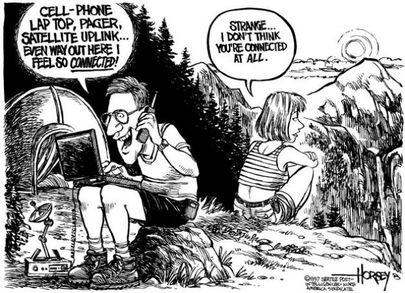 http://bit.ly/1gAFz4j http://bit.ly/1gAFz4j 6. Eco-activism is a religion, and anyway I recycle. There is a propensity to label. When it comes to climate change the terms "greeny" or "eco-nut" or worse are often bandied about, and yes, there are many in this world who do perhaps warrant such labels. Their motivations are mixed, and in many cases it may well reflect a type of personal "religion", especially among the new-age and mysticism movements. However, good can be done for the wrong reasons. Then, at other times a climate change discussion may reduce to seeing who can outdo another to be the "greenest". Again, motivations can be highly varied, ranging from egotism through to genuine concern for the environment. For the Christian it is easy to forget that in practice we are not called to make our faith comfortable for ourselves or others, we are not called to pigeon-hole and label others, and we are not called to be boastful of our accomplishments. Rather, our actions should give truth to our words, and our actions reflect our faith. A Christian is called to holy (Lev 19:2; 1Pe 1:13-16). It is hard to conceive how a Christian can be holy and at the same time contribute to non-sustainable lifestyles of relative comfort at the expense of others. If we are to be holy, we live by truth not by desire ... in this way our desires conform to the truth. Sadly the church of today (remember, that is you and I) has a propensity to make the truth to be what pleases us - we like to take God and make God on our terms. When all is said and done My thinking will still mature, as I hope does yours. However, I've tried to lay out a case that does not start with eco-activism and is not mired in secondary interpretations of scientific evidence. How might I sum this up? How about: "Being a Christian is all about a personal relationship with Jesus. If my professed desire is to be like Jesus (be holy), then does the pattern of my life reflect this desire? For Jesus, being holy was manifest in compassion, service, simplicity, and doing the Father's will. Do my actions contribute to inequality and poverty? Is my comfort ahead of my service? Will I contribute to an age where future generations suffer?" To be silent in voice or action on climate change is, I uncomfortably argue (because I know I fail too), giving lie to our / my professed faith. |
Important: The views expressed on this blog do not necessarily reflect the official position of our church
Like to Write? Archives
June 2015
|

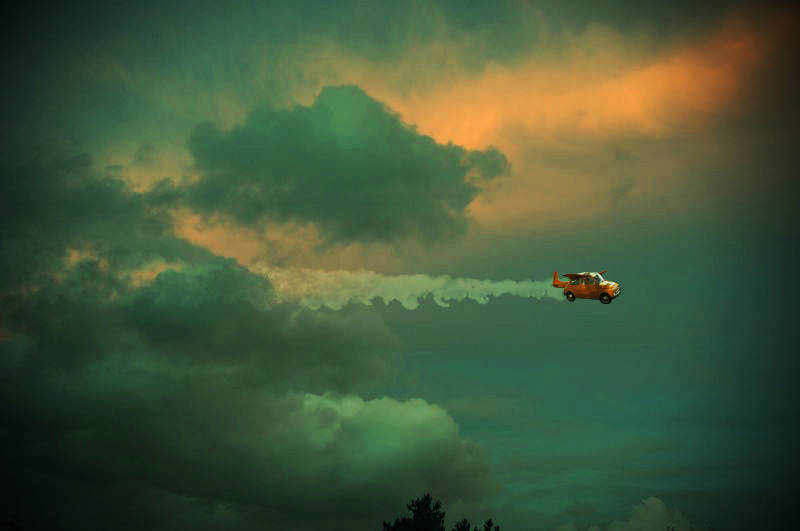
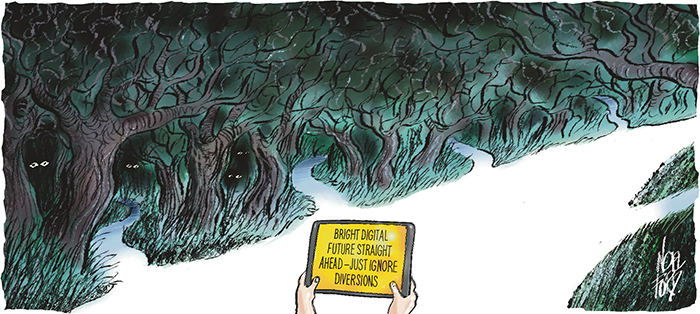
 RSS Feed
RSS Feed

